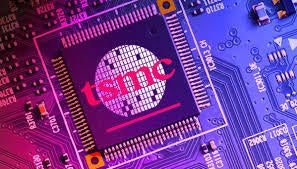Samsung might leap ahead of TSMC in the race to produce cutting-edge 2nm chips in the U.S., potentially two years before TSMC hits its 2028 target. Earlier this year, we reported that Taiwan’s TSMC, the world’s largest semiconductor foundry, planned to start manufacturing chips using its 2nm process node in Arizona by 2028. 
While TSMC’s Taiwan facilities are expected to ship 2nm chips as early as later this year or early next, it’s a major win for the U.S. to get a head start in semiconductor production with this new tech.
What’s even more exciting is that Samsung is joining the fray. Samsung has already begun preparing its advanced chip production lines in Taylor, Texas, and is on track to produce 2nm chips as soon as January or February 2026, which is two years ahead of TSMC’s 2028 goal. This positions Samsung to take advantage of U.S. President Donald Trump’s push to have cutting-edge chips manufactured in the States to bolster tech innovation and secure supply chains.
The Taylor, Texas facility, a major investment by Samsung, has raised expectations for local production of 2nm chips. In January, we learned about Samsung’s plan to build this fab for producing 4nm chips in the U.S. However, due to technical and production hurdles, the company didn’t manage to produce any 4nm chips in the U.S. despite the heavy investments. Now, the question remains: can Samsung overcome these hurdles to produce 2nm chips successfully?
The global semiconductor industry remains heavily reliant on TSMC’s leadership, but Samsung is determined to catch up. However, its challenges are significant. The company’s yield on advanced process nodes has been much lower than TSMC’s. For instance, Samsung’s yield on its 2nm (SF2) process node is reported to be around 40%, while TSMC boasts a yield closer to 60%. For mass production to be viable, yields need to exceed 70%. If Samsung can improve its yield, it could soon be able to produce 2nm chips at scale, making the company a key player in the U.S. semiconductor manufacturing space.
The demand for U.S.-made chips continues to rise, especially as global supply chains become more unpredictable. Thanks to tariff exemptions on domestically produced chips, Samsung’s chips made in Texas could gain a competitive edge in the market. While the race is still on, 2026 could be a pivotal year for U.S. chip production with Samsung’s 2nm chips.